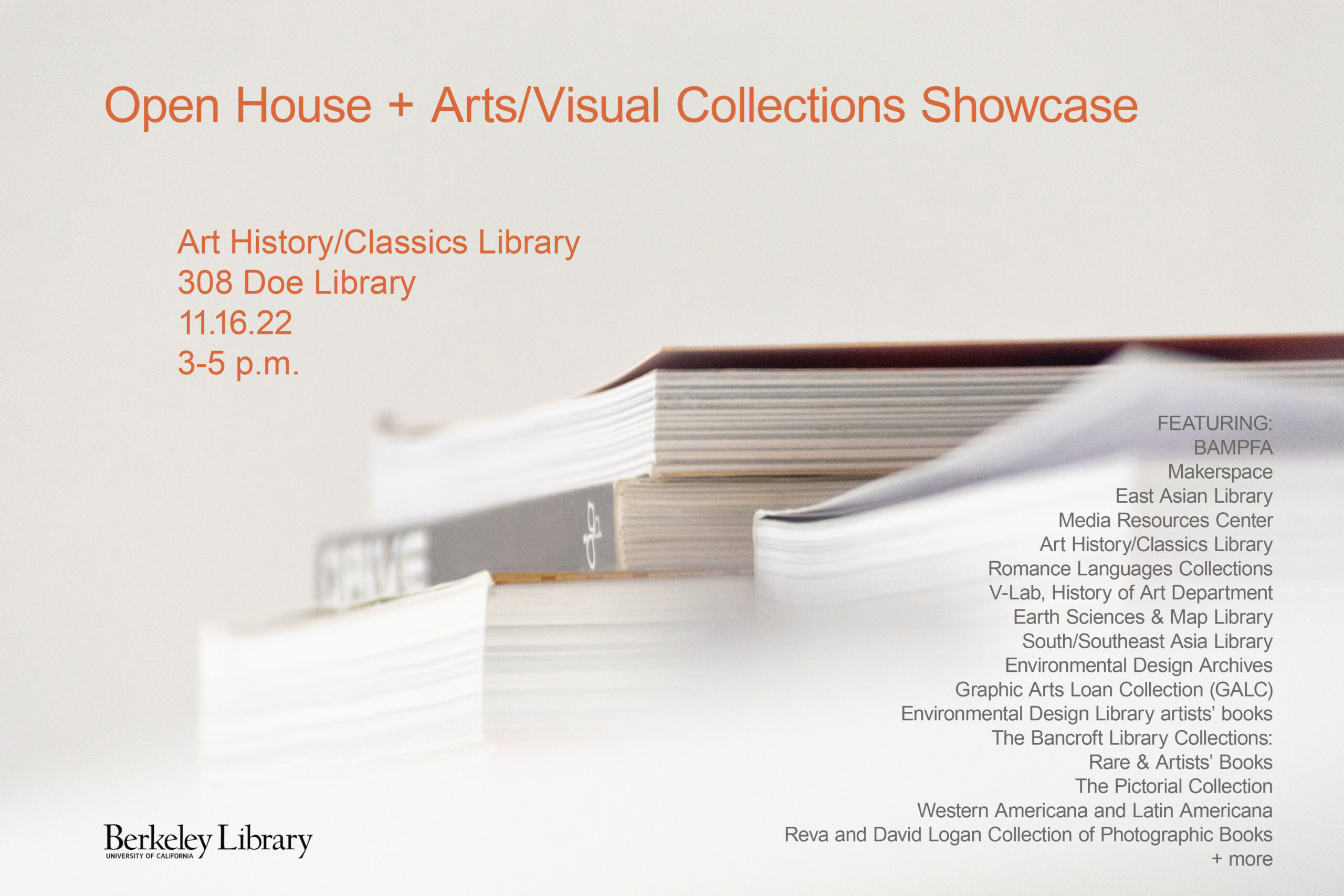
Join us for an open house and 50th anniversary celebration of the Art History/Classics Library. We will be showcasing arts-related and visual collections from across the UC Berkeley Library in a book-fair-style event featuring collection highlights and outreach materials. Come and learn about our many arts-related library holdings.
Wednesday, November 16th
drop by anytime between 3-5 p.m.
Art History/Classics Library
Room 308 Doe Library